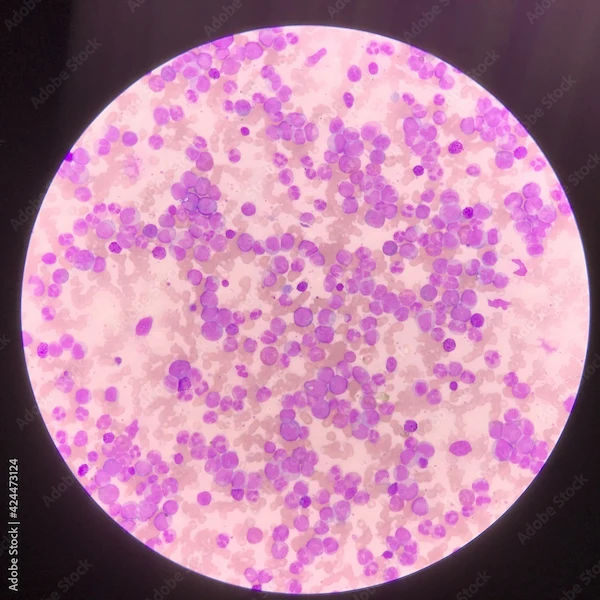How To Reduce Eosinophil Count?
Learn how to reduce eosinophil count naturally through medical treatment, dietary changes, allergy management, and stress reduction. Book tests and consultations easily on Apollo 24|7.

Written by Dr.Sonia Bhatt
Last updated on 3rd Jul, 2025

Introduction
Eosinophils are a type of white blood cell that play a crucial role in your immune system, helping your body fight infections, especially those caused by parasites. However, when eosinophil levels become too high (eosinophilia), it can indicate an underlying health issue such as allergies, asthma, autoimmune diseases, or infections.
If you’ve been diagnosed with a high eosinophil count, you may be wondering how to bring it back to normal. The good news is that with the right approach—including medical treatment and lifestyle changes—you can manage and reduce your eosinophil levels effectively.
Understanding Eosinophils and Their Role
Eosinophils are part of your immune system and help protect your body from infections. However, when their numbers rise significantly, they can cause inflammation and damage to tissues, leading to conditions like:
Allergies (e.g., hay fever, eczema)
Asthma
Parasitic infections
Autoimmune disorders
Certain cancers
A normal eosinophil count is typically between 30 to 350 cells per microliter of blood. If your count is higher, your doctor will investigate the cause before recommending treatment.
Symptoms of High Eosinophil Count
Depending on the underlying condition, symptoms may include:
Persistent cough or wheezing (common in asthma)
Skin rashes or itching (allergic reactions)
Shortness of breath
Fatigue and weakness
Abdominal pain or diarrhoea (if related to parasitic infections)
If you experience these symptoms, consult a doctor for proper diagnosis and treatment.
Consult Top Specialists for Your Symptoms
How to Reduce Eosinophil Count?
Here are some effective approaches to lowering eosinophil levels:
1. Identify and Treat the Underlying Cause
The most effective way to lower eosinophils is to address the root problem. Your doctor may recommend:
Antihistamines or corticosteroids (for allergies or asthma)
Antiparasitic medications (if an infection is detected)
Immunosuppressants (for autoimmune conditions)
2. Dietary Changes to Support Immune Health
Certain foods can help reduce inflammation and support balanced immune function:
Anti-inflammatory foods: Turmeric, ginger, leafy greens, and fatty fish (rich in omega-3s).
Probiotics: Yogurt, kefir, and fermented foods help maintain gut health.
Vitamin-rich foods: Citrus fruits, bell peppers, and nuts (Vitamin C & E support immunity).
Hydration: Drink plenty of water to flush out toxins.
Avoid processed foods, excessive sugar, and alcohol which can worsen inflammation.
3. Manage Allergies Effectively
If allergies are the cause:
Avoid triggers (dust, pollen, pet dander)
Use air purifiers at home
Take prescribed allergy medications (antihistamines, nasal sprays)
4. Improve Respiratory Health (For Asthma & Lung Conditions)
Support your lungs and airways by:
Practising breathing exercises (like pranayama)
Avoiding smoking and secondhand smoke
Using inhalers as prescribed to control asthma symptoms
5. Reduce Stress Levels
Chronic stress can weaken immunity and worsen inflammation. Techniques to manage stress include:
Yoga and meditation
Ensuring 7–8 hours of sleep each night
Engaging in regular physical activity like walking or swimming
6. Regular Medical Check-ups
Monitor your eosinophil levels with periodic blood tests to ensure they stay within a healthy range.
Assess Your Eosinophil Levels
When to See a Doctor?
Early diagnosis and treatment can prevent complications. Seek medical attention if you experience:
Persistent fatigue, unexplained weight loss
Severe allergic reactions
Breathing difficulties
Frequent infections
Final Thoughts
A high eosinophil count is often a sign of an underlying issue rather than a disease itself. By working with your doctor and making healthy lifestyle changes, you can bring your levels back to normal and improve your overall well-being.
If you need personalised advice, consider booking a consultation with a specialist through Apollo 24|7 for expert guidance and treatment options.
Consult Top General Physicians
Consult Top Specialists for Your Symptoms

Dr. Lakshmi Sanjitha Kakani
General Physician/ Internal Medicine Specialist
6 Years • MBBS, MD (General Medicine)
Visakhapatnam
Apollo 24|7 Clinic - Andhra Pradesh, Visakhapatnam

Dr Divya Lekha Gunta
General Practitioner
10 Years • MBBS, MD (Pathology)
Visakhapatnam
Apollo 24|7 Clinic - Andhra Pradesh, Visakhapatnam

Dr. Shesham Srinidhi
General Practitioner
5 Years • MD(physician)
Hyderabad
Apollo 24|7 Clinic, Hyderabad
(100+ Patients)

Dr. Immanuel Raj
General Practitioner
8 Years • MBBS. MBA (HHSM)
Visakhapatnam
Apollo 24|7 Clinic - Andhra Pradesh, Visakhapatnam

Dr. J T Hema Pratima
General Practitioner
9 Years • MBBS
Chennai
Apollo 24|7 Clinic - Tamilnadu, Chennai
(250+ Patients)
Consult Top General Physicians

Dr. Lakshmi Sanjitha Kakani
General Physician/ Internal Medicine Specialist
6 Years • MBBS, MD (General Medicine)
Visakhapatnam
Apollo 24|7 Clinic - Andhra Pradesh, Visakhapatnam

Dr Divya Lekha Gunta
General Practitioner
10 Years • MBBS, MD (Pathology)
Visakhapatnam
Apollo 24|7 Clinic - Andhra Pradesh, Visakhapatnam

Dr. Shesham Srinidhi
General Practitioner
5 Years • MD(physician)
Hyderabad
Apollo 24|7 Clinic, Hyderabad
(100+ Patients)

Dr. Immanuel Raj
General Practitioner
8 Years • MBBS. MBA (HHSM)
Visakhapatnam
Apollo 24|7 Clinic - Andhra Pradesh, Visakhapatnam

Dr. J T Hema Pratima
General Practitioner
9 Years • MBBS
Chennai
Apollo 24|7 Clinic - Tamilnadu, Chennai
(250+ Patients)
